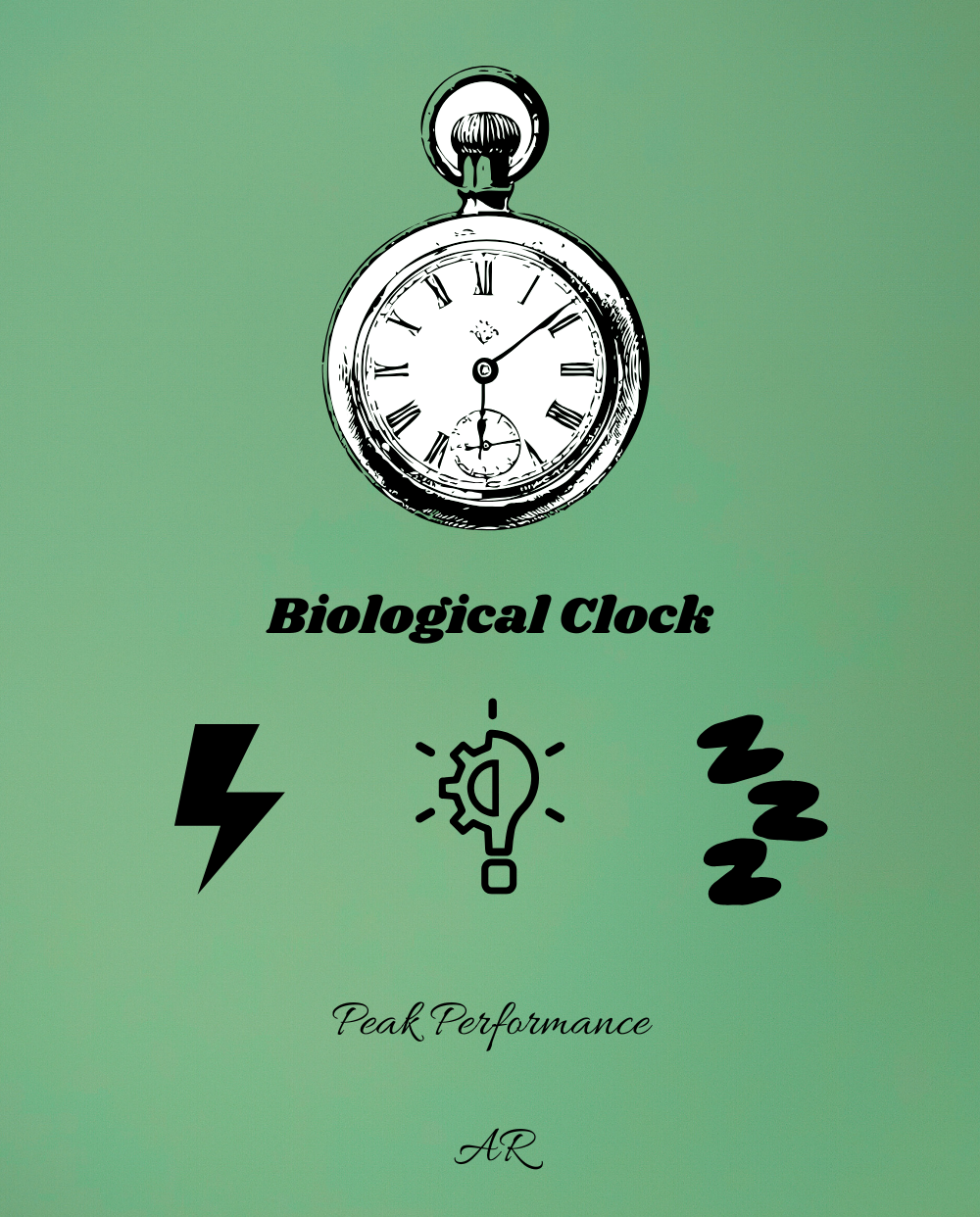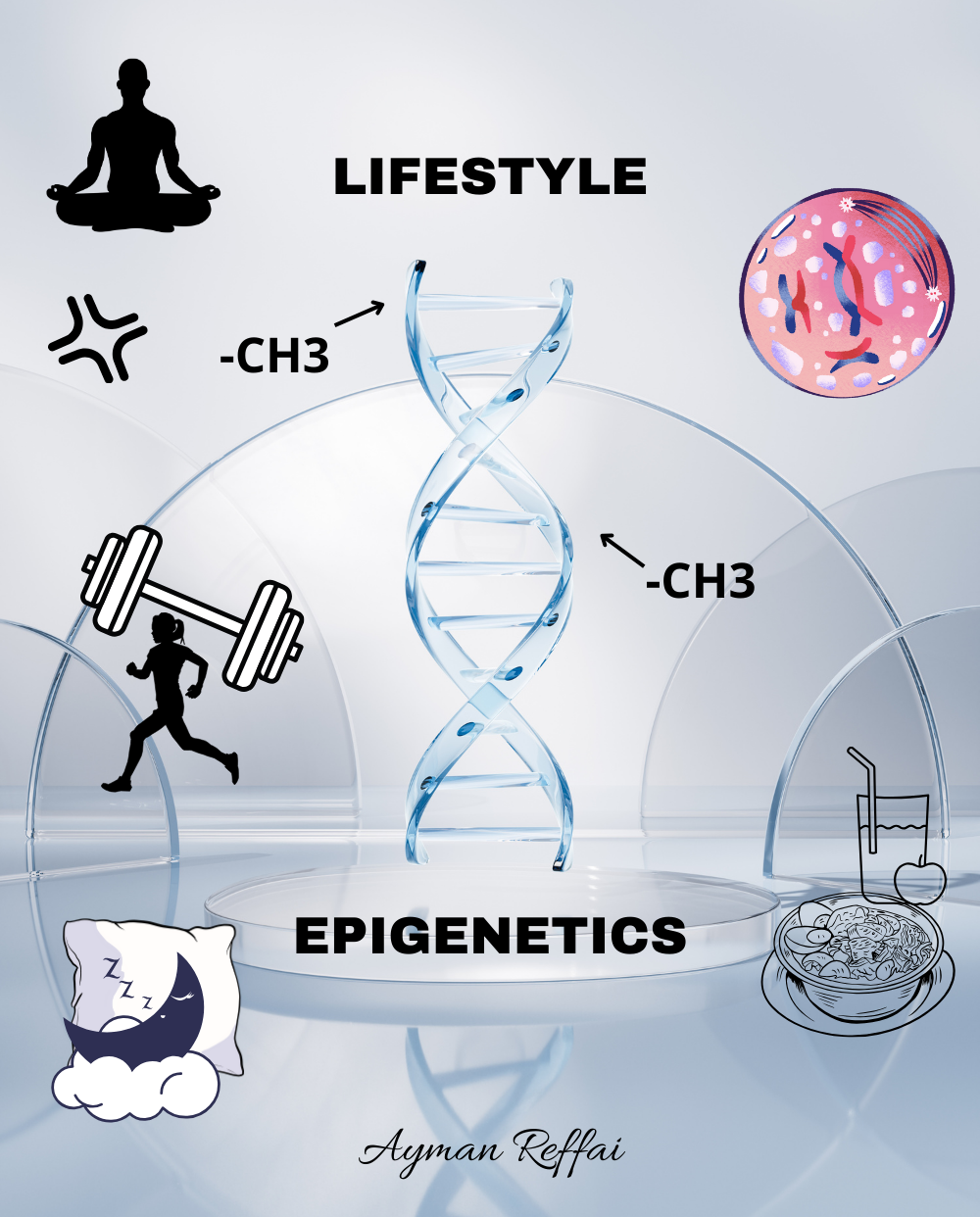
⏰ Unlocking Peak Performance: How to Align with Your Biological Clock
Have you ever felt naturally alert and focused in the morning—but sluggish after lunch? Or found yourself struggling to fall asleep after late-night screen time? That’s not just lifestyle—it’s biology.
Welcome to the science of chronobiology—the study of how your internal biological clock influences everything from productivity to metabolism, sleep, and even mood.
In this article, we’ll explore how aligning with your circadian rhythms can help you unlock higher energy, sharper focus, and better health—backed by cutting-edge science and practical tools you can apply today.
🌍 What Is Chronobiology?
Chronobiology is the field of science that studies biological rhythms—the natural cycles that regulate our body functions. The most well-known rhythm is the circadian rhythm, a ~24-hour internal clock that influences:
- Sleep-wake cycles
- Hormone production (like melatonin and cortisol)
- Body temperature
- Blood pressure
- Alertness and cognitive performance
- Digestion and metabolism
At the core of this system lies the suprachiasmatic nucleus (SCN), a tiny group of neurons in the hypothalamus that acts as the master clock, syncing our internal processes with the external environment—especially light received from the retina. The SCN communicates with other brain regions and peripheral clocks in other organs via neural and hormonal signals.
🧠 How Circadian Rhythms Affect Your Brain and Body
Every cell in your body contains its own clock genes, but the SCN coordinates them—like a conductor in a symphony. Disruptions to this rhythm can lead to:
- Fatigue and poor focus
- Mood swings and irritability
- Sleep disturbances
- Metabolic dysfunction (weight gain, insulin resistance)
- Increased risk of chronic diseases (cardiovascular disease, cancer, depression)
🔬 The Science
- Cortisol, our natural “wake-up” hormone, peaks in the early morning to get us going.
- Melatonin, the sleep hormone, rises in the evening with darkness, preparing us for rest.
- Our cognitive alertness follows a biphasic pattern: we’re sharpest mid-morning and again in the late afternoon.
Understanding and aligning with these patterns can supercharge your day.
💡 Practical Ways to Sync With Your Biological Clock
Let’s explore research-backed strategies you can implement to enhance performance and well-being by working withyour body—not against it.
1. 🌞 Get Morning Sunlight Within 30–60 Minutes of Waking
Natural light is the most powerful signal for your circadian clock. Morning light exposure resets the circadian clock by stimulating the retinohypothalamic tract, which signals the suprachiasmatic nucleus (SCN). This process helps suppress melatonin and boost cortisol—setting your clock for the day and improving alertness and mood.
✅ Tip: Aim for 10–30 minutes of outdoor light exposure every morning. No sunglasses. Even on cloudy days.
2. 🧠 Time Your Deep Work Around Your Cognitive Peaks
Scheduling your deep work around the time when you’re naturally alert and focused can significantly improve your productivity. Some people wake up and peak early, whereas others feel their best later in the day. Understanding your own patterns can be life-changing.
✅ Tip: Schedule demanding tasks (problem-solving, writing, analysis) during these windows. Save admin work for early afternoon dips.
3. 🍽️ Eat During Daylight Hours (Time-Restricted Eating)
Eating late disrupts the circadian regulation of insulin and glucose metabolism, increasing the risk of metabolic disease. Several studies have shown that early time-restricted feeding improved blood sugar, blood pressure, fat loss, and sleep quality.
✅ Tip: Try a 10–12 hour eating window, starting with breakfast and finishing dinner around 3 hours before bed.
4. 📵 Avoid Blue Light 1–2 Hours Before Bed
Screens emit blue light, which blocks melatonin production and delays sleep onset. Studies have found that blue light (460–480 nm) can suppress melatonin production by tricking the SCN into thinking it’s daytime. This delays sleep onset, reduces REM sleep, and shortens total sleep duration. A study by Gooley et al. (2011) showed that even low levels of room lighting before bed reduced melatonin by over 50%.
✅ Tip: Use blue light filters (like f.lux or Night Shift), wear blue-blocking glasses, or switch to low-light activities (reading, stretching, journaling) before sleep.
5. 🛌 Stick to Consistent Sleep and Wake Times
Irregular sleep schedules disrupt the SCN, leading to sleep inertia, mood changes, and poor cognitive function. Actually, regular sleep timing is a stronger predictor of mood and performance than total sleep duration.
✅ Tip: Aim to wake up and sleep at the same time daily, even on weekends. It keeps your rhythm predictable and strengthens sleep quality.
6. 🚫 Limit Caffeine After 3 PM
Caffeine can block adenosine, a molecule that promotes sleep and relaxation, by binding to its receptors. Since caffeine has a half-life of ~5–7 hours, late intake can delay sleep and affect sleep quality.
✅ Tip: Enjoy coffee in the morning, and switch to herbal teas in the afternoon if needed.
🧠 Why It All Matters: Long-Term Health Is Rhythmic
Disrupting your circadian rhythm doesn’t just make you tired. It sends ripple effects throughout your endocrine system, immune function, cellular repair, and brain health. Chronic misalignment is now recognized as a major risk factor for:
- Type 2 Diabetes
- Cardiovascular Disease
- Obesity
- Depression and Anxiety
- Alzheimer’s and Cognitive Decline
- Cancer
Your internal clock is not just a productivity tool—it’s a health guardian. Syncing with it is one of the simplest, yet most powerful ways to optimize your performance and prevent disease.
🧪 Final Thoughts: Design Your Day, The Circadian Way
Modern life often pulls us out of sync—late-night emails, irregular meals, artificial light. But the science is clear: when we align our daily habits with our biology, we perform better, think clearer, sleep deeper, and feel healthier.
This isn’t just a performance hack—it’s how our biology is meant to operate.
Author
Ayman Reffai
Dr. Ayman Reffai is a dedicated PhD, Fulbright alumnus, and ReachSci committee member. He got his PhD with the highest honor in Molecular Biology, Medical Biology, Bioinformatics, and Biotechnology with affiliations at the School of Medicine, Stanford University (US), and FSTT, Abdelmalek Essaadi University (Morocco) as part of the Fulbright program. Dr. Ayman Reffai is driven by a passion for scientific research and its potential to improve lives. With a strong commitment to making a positive impact on both the scientific community and society at large and a desire to inspire and guide others, Ayman actively engages in research, teaching, mentoring, and fitness endeavors.



Leave a Reply